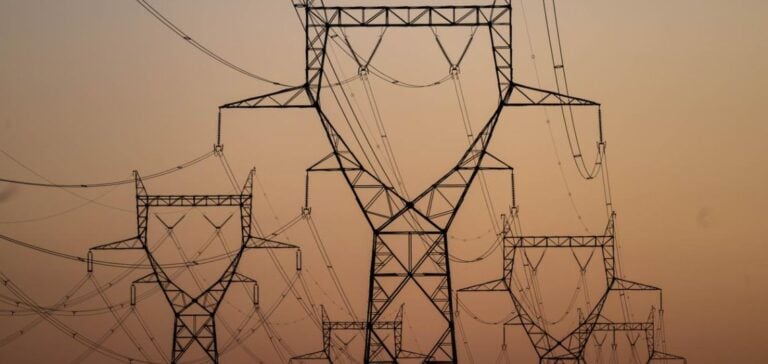The 400,000-volt interconnection project between Bordeaux, France, and Bilbao, Spain, continues to face strong local opposition. Led by Réseau de Transport d’Électricité (RTE) and Red Eléctrica, this strategic initiative, costing 3 billion euros, aims to enhance energy exchanges between the two countries in alignment with European climate objectives. However, the resistance in the Landes region shows no sign of waning.
A Divisive Route
Spanning 400 kilometers, the route for this high-voltage line crosses sensitive natural areas and inhabited territories. To avoid the 4,500-meter-deep underwater canyon of the Gouf de Capbreton, the project requires burying the cables through five communes in the Landes, including Hossegor and Capbreton. Although this approach seeks to minimize landscape impacts, opponents demand an alternative route along the A63 highway.
On Monday, around twenty activists gathered to obstruct the ongoing work in Hossegor. Some climbed trees to slow the progress of the project, adopting tactics similar to those used against the A69 highway in Occitania. One activist, nicknamed “Kiwi,” described the project as “undemocratic,” criticizing a lack of public engagement despite opposition expressed during the 2021-2022 public inquiry.
Major Energy Stakes
Authorities view this interconnection as critical for integrating more renewable energy into European power grids and achieving climate targets. The Landes prefecture emphasized that burying the cables is a significant effort to mitigate landscape and environmental impacts.
Despite these assurances, local associations and residents argue that the project is ecologically destructive. A collective of opponents recently sent an open letter to the prefecture and Prime Minister François Bayrou, demanding an immediate moratorium and labeling the project as “ecocidal.”
Growing Visibility for the Opposition
Although the opposition movement remains relatively small, it is gaining traction through increased support from environmental organizations and targeted media actions. Activists, referred to as “squirrels,” occupy the affected areas to hinder the project’s progression. This ongoing conflict shows no signs of resolution as construction advances.
Neither RTE nor Red Eléctrica responded to media inquiries about the activists’ demands. Despite local resistance, authorities appear committed to pushing the project forward.






















